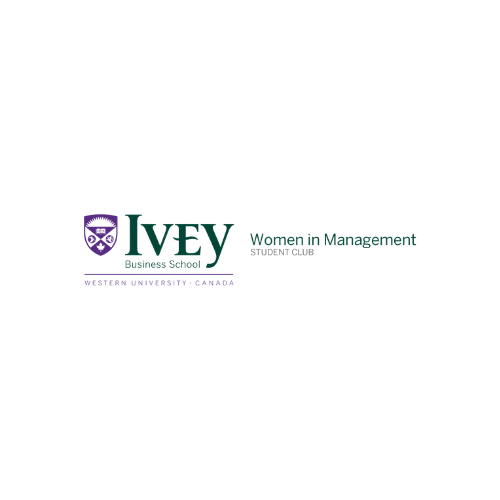joyce chan: associate, altas partners
Dear Members,
Welcome to our Breaking into the Industry Series for WIM Insights! With finance recruiting in full swing, we thought it would be relevant and helpful to provide insights from our own alumni on Women in Finance.
For this edition, we spoke to Joyce Chan, HBA ‘17. Joyce worked in investment banking at Goldman Sachs in San Francisco, before moving into private equity at Altas Partners.
What led you to a career in Finance?
I actually completed my first two years at Western in Med-Sci and was thinking of entering the pharmaceutical industry originally and had no intention of going into finance. However, in second year, as I learned about finance through friends and in Business 2257, I decided it was an interesting and challenging field worth exploring further.
To understand the industry, I reached out as many Ivey finance alums as possible - I think I spoke to at least two people every day over the summer. I tried to network in every area of finance and speak with people in all levels of seniority. I got incredible exposure to investors, investment bankers, ECM, DCM and corporate finance. I finally ended up deciding on investment banking because I believed it would give me a great head start into a successful long-term career with a lot of optionality.
How did you pivot your career into IB?
Getting into banking was undoubtedly a tough process. I remember going through all the Breaking Into Wall Street guides preparing for interviews. I even spent an entire weekend at the Ivey building, completely dedicated to interview prep. I did at least 20 mocks with peers and HBA2s before my actual interview.
On the side, I continued to build my network and understand the industry and recruiting processes as well as I could. I quickly realized that understanding each firm’s unique culture through conversations and determining which fit best with my personality would be just as important to the technicals.
Then Goldman came around for an early set of interviews and I made it to the super day for their Los Angeles office. I eventually received an internship offer and worked in their San Francisco office for full-time.
What were the biggest factors that helped you break into the industry?
I think that most people have the ability to master the technical prep required for banking if they put in the hours. But understanding the inner workings of the industry, such as industry and firm cultures, recruiting processes, and timelines, were the bigger challenge. This is where networking helped me the most – speaking to people in the industry and HBA2s really helped me navigate these hurdles.
Ultimately, I think it’s really important to step out of your shell and have the mentality and drive to do whatever it takes. My first few mocks did not go well at all but by the twentieth mock, I felt very confident and comfortable in my capabilities.
What are some changes you want to see in the industry going forward?
While all firms are different and have their own specific benefits and disadvantages, there are some common themes in the industry I’ve seen. A major one is that there is a difference between diversity and inclusion that isn’t always talked about. There are a lot of steps by employers now to create a diverse workplace, but it can be more challenging, and often less thought about, to make it inclusive which stems from both structural and cultural norms. Being a female minority in predominantly white male workplace, my colleagues and clients often have lifestyles and interests that I didn’t have the experiences to relate to. I felt that I consciously had to make a choice to stay true to my personality, even if that required working harder to find different ways to relate to others around me. I hope that as we bring in more diversity, both work-specific topics and casual conversations will expand to be more representative of different types of personalities and backgrounds.
A second change that will take time and is slowly in the works is seeing more representation in senior level leadership. At times it’s hard to imagine what is possible in this industry and the tactical steps to achieve that when there is no “comparable” role model to directly look up to. I think firms are making a conscious effort of bringing in diversity at the junior level, but without direct access to senior mentors who have walked similar steps, it can be challenging at times to envision and chart a path for a long-term career in the industry.
Specific to COVID-19 and shifts to WFH, what advice would you give to students recruiting in finance today?
Tactically, it’s difficult to predict how the recruiting landscape will shift with COVID-19, but I believe the power of network will always stay relevant. In fact, it will likely even the playing field as there are less geographic barriers to connecting with others now.
Additionally, COVID-19 has pushed the boundaries on how much flexibility you are given to your own schedule. I think this is a good opportunity for students to look at how employers are providing optionality to their employees right now. I would suggest that students speak with people at different firms and understand how accommodating they have been through COVID-19. Their actions will reflect the firm’s culture and how they treat employees, even as things begin to revert to normal.

